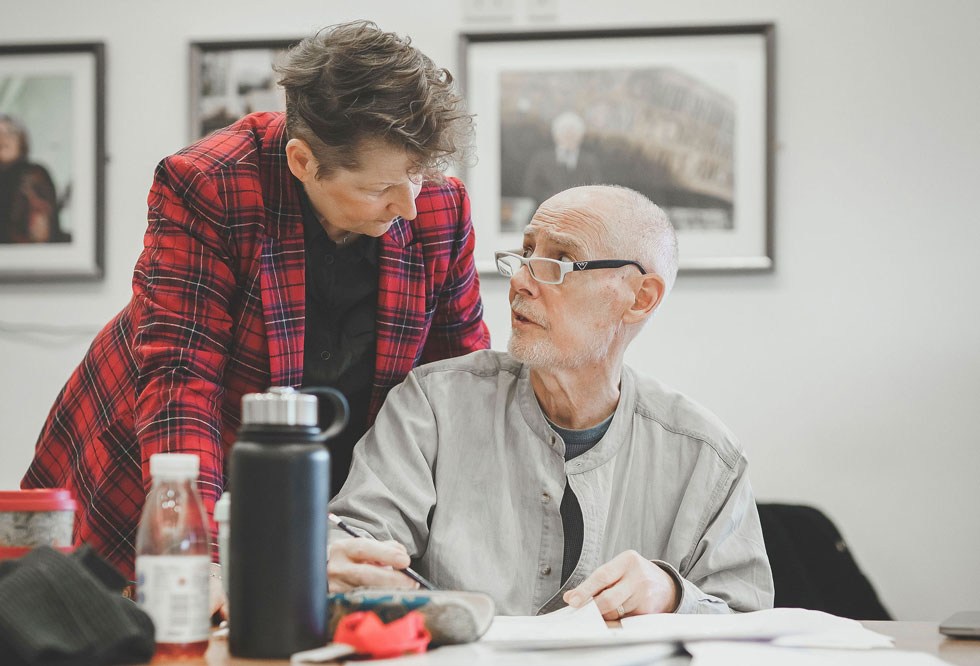With the immediate changes to your day-to-day life, the intense emotions, and the many practical considerations that come with the death of your spouse, you may well feel overwhelmed and anxious about your future.
Some of the questions that might come up are as follows:
- What should I be feeling?
- What can I do?
- When will I feel ok again?
Everyone’s experience is different; however, we’ve put together some advice below to try and answer some of these questions for you.
If you feel you need to speak to someone, please don’t hesitate to get in touch with our bereavement team if your spouse was looked after by Hospiscare. If not, please contact your GP, who will be able to refer you to the most appropriate organisation.
What should I be feeling?
There is no ‘should’ when it comes to grief and emotions. Everyone experiences grief differently, and no two relationships are the same. You might find your emotions change dramatically within the space of seconds. Try not to be alarmed by this.
Here are some things you might be feeling (although there are plenty of other emotions you might also experience):
- Numb
- Shocked
- Feeling as if you have no purpose anymore
- Feeling angry at your spouse
- Feeling angry at everyone else
- Afraid
- Feeling guilty about not doing enough for them
- Worried about practical things like money
- Feeling sick all the time
- Feeling like you don’t know who you are any more
- Blaming yourself for their death
- Feeling relieved that their suffering is over
- Feeling guilty for thinking certain things
Whether you’re feeling any of these things or something completely different, remember that just because you’re feeling them, it doesn’t mean they’re ‘true’. Your emotions will evolve and change over time, and it’s ok to not be ok.
What can I do?
When you’re experiencing grief, it’s important to look after yourself. We’ve put together some advice for supporting yourself through the grief.
Take care of yourself
Grieving can take be hard on your body as well as your emotions. You might have no appetite or experience trouble sleeping. Although it might be easier said than done, try to take care of yourself by eating well, exercising and getting enough rest.
When you’ve lost a spouse, you might find you lost interest in cooking and eating. You may find it helps to have lunch with friends, or turning the radio or TV on during meals.
If your spouse did all the cooking and you find yourself at a loss in the kitchen, why not invest in a beginners’ cookbook? There are some excellent ones for students out there that will teach you anything from how to boil an egg to cooking a full roast dinner.
Try to avoid drowning your sorrows by over-drinking – it can actually make everything feel much worse rather than better.
Talk with supportive friends
When you feel you’d like to talk about your spouse or how you’re feeling, let your family and friends know. They may welcome the chance to share memories.
Try to accept their offers of help and company when you can.
You may also find that talking to a therapist or counsellor is helpful and gives you a safe space to talk without worrying about others.
Join a support group
Sometimes it can help to talk with people who are also grieving, and members often have helpful ideas based on their own experiences. Hospitals, local communities and religious groups often have support groups, and there are also online support groups which make it possible to get help without leaving home.
Hospiscare runs a number of group services across Exeter, Mid and East Devon. Please contact the Supportive Care Team on 01392 688008 for details.
Sort out your social life
Since things have changed, you might find it difficult to navigate your social life as a single person. If you used to socialise together a lot with couples, you might feel like you don’t fit in anymore. Try to recognise what it is that makes you not want to socialise, and address that. You might find that you could meet up with friends one-on-one to take the pressure off.
If you’ve been caring for your spouse for a long time, you may find you’ve got out of the habit of seeing friends or family. Try to reach out and build those relationships again – after all, we all need a support network.
When will I feel ok again?
There is no easy answer to this question. Everyone’s experience of grief is different, and it’s certainly not a straight line from ‘intense grief’ to ‘fine’.
As Hospiscare bereavement volunteer, Liz, explains in this article:
“When someone dies, nobody can tell you how to do things. We are all individuals and move along our own path, at our own pace and grieving is a very personal experience.
“Some people move on very quickly, others never get over the death of someone significant in their lives. But in time they learn to adjust to the fact that person has gone forever, and slowly begin to find a new way to live their lives, accepting finally that it has to be different from any previous expectations.
“Why would you ever forget? Embrace the person who lived and has now died. Talk about them, it’s healthy.”
Everyone experiences grief differently; however, if you’re worried about how you’re feeling, do get in touch with your GP or healthcare professional.





